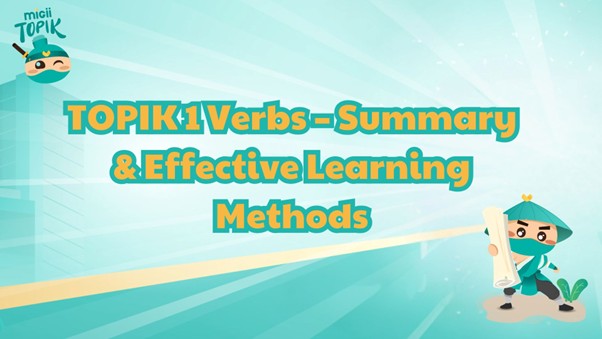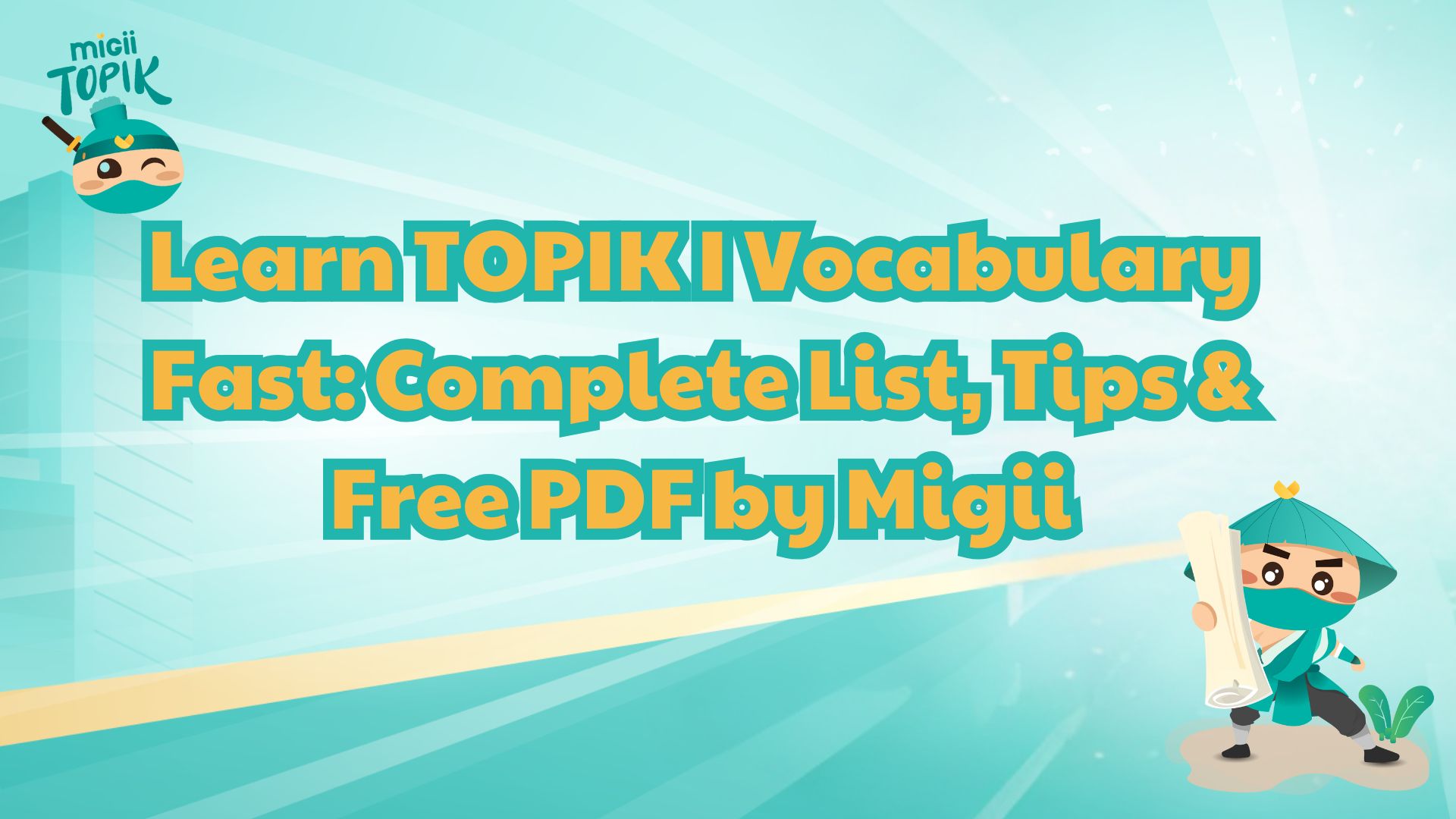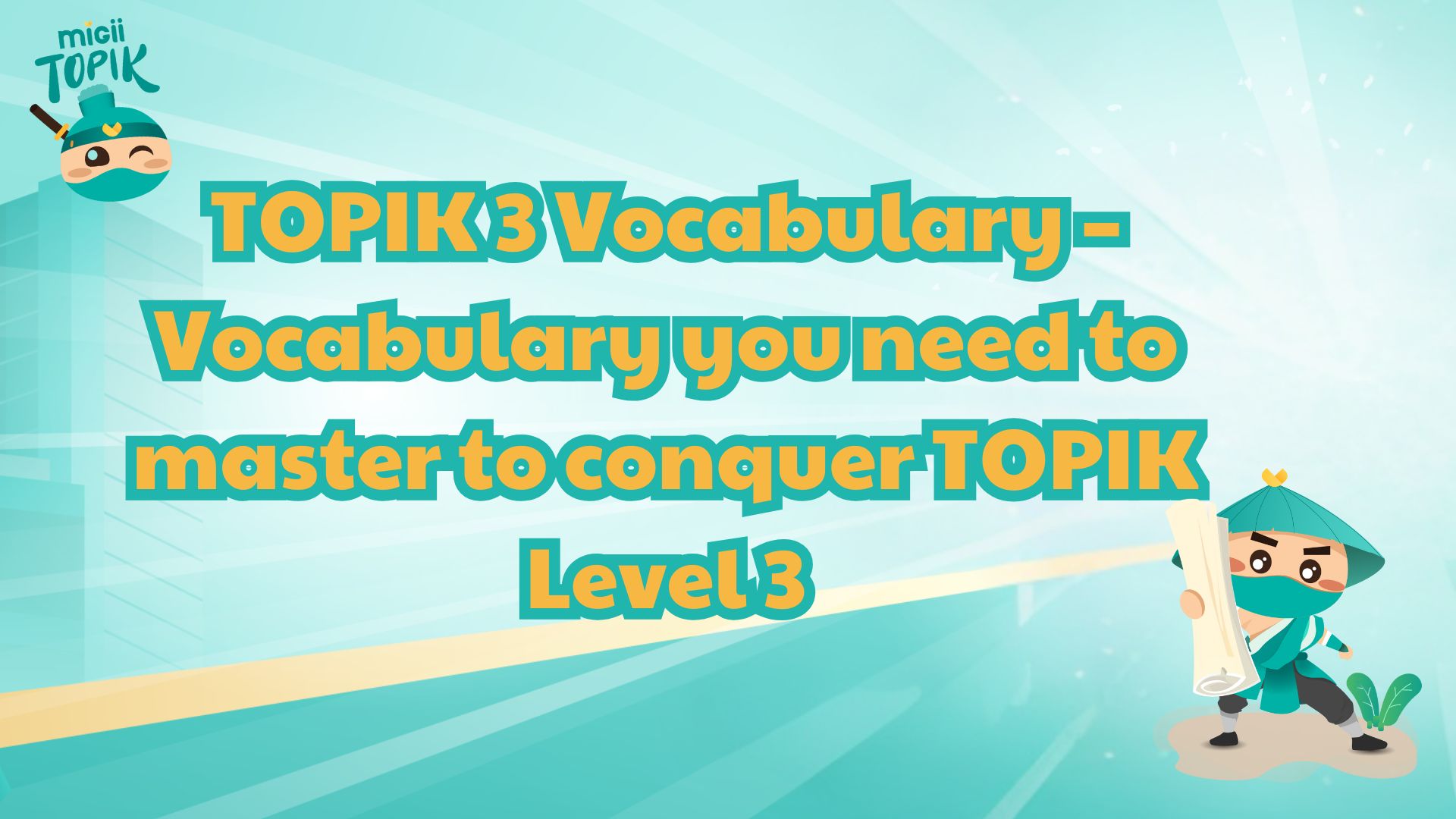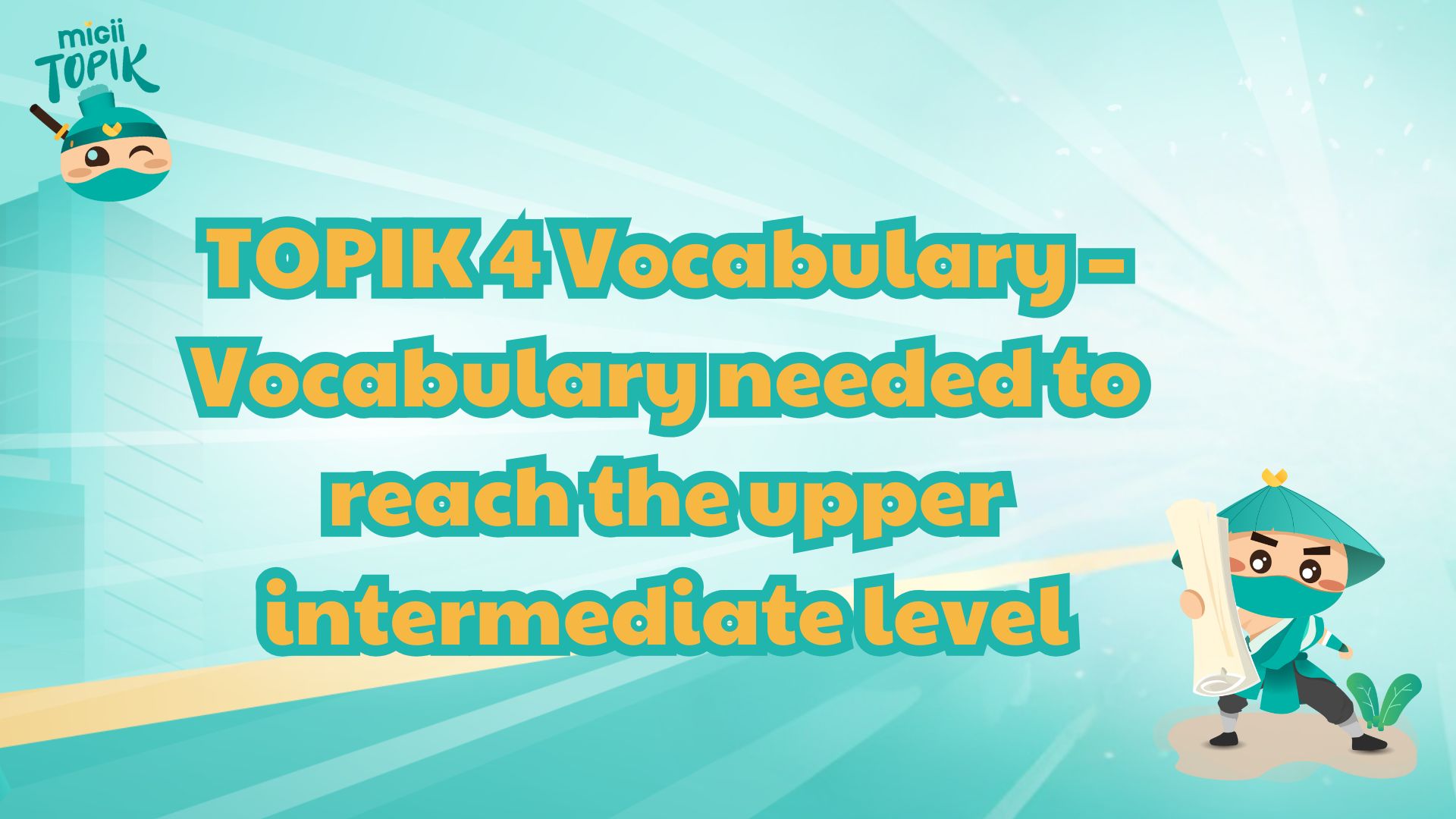Why is TOPIK 6 Vocabulary so important?
If you’re aiming to conquer TOPIK Level 6, congratulations — you’ve reached the pinnacle of your Korean learning journey! At this level, you need not only fluent communication skills but also a deep understanding of Korean culture, politics, society, and academic language.
One of the key factors for success at this stage is having a strong advanced vocabulary (TOPIK 6 Vocabulary). Using a TOPIK Level 6 Vocabulary List can make your study more structured and effective. These advanced words not only help you grasp subtle meanings in reading and listening tasks but also serve as a “weapon” for writing essays and speaking fluently like a native.
In this article, we will:
- Explore the characteristics of TOPIK 6 vocabulary
- Review common word lists by topic
- Discover effective learning methods
- Recommend study materials and tips to help you achieve a high score
Characteristics of vocabulary in TOPIK level 6
To achieve TOPIK Level 6, learners need to master academic and specialized vocabulary, commonly found in texts related to politics, society, economics, science and culture.
Some outstanding features of TOPIK 6 Vocabulary include:
If you’re aiming for TOPIK Level 6, congratulations — you’re reaching the peak of your Korean learning journey! At this level, you need not only fluency but also a deep understanding of Korean culture, politics, society, and academic language.
A key to success here is mastering advanced vocabulary (TOPIK 6 Vocabulary). These words help you grasp subtle meanings in reading and listening tests, and they’re essential for writing essays and speaking naturally like a native.
In this article, we’ll explore:
- The main features of TOPIK 6 vocabulary
- Common word lists by topic
- Effective learning methods
- Recommended resources and study tips to achieve a high score
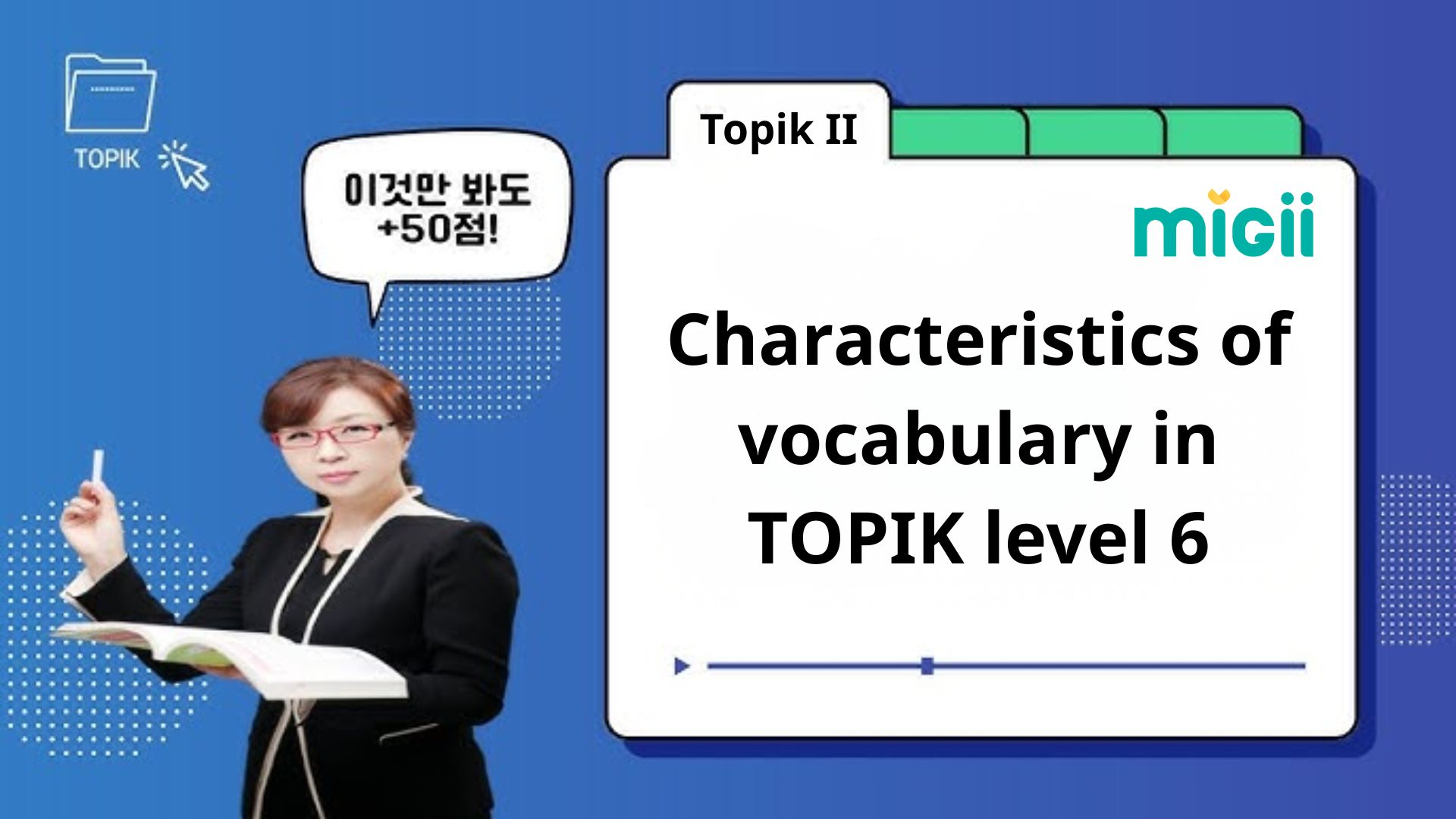
Characteristics of vocabulary in TOPIK level 6
Compared to TOPIK 5, TOPIK 6 vocabulary is more specialized, requiring learners to not only "know the meaning" but also understand the usage, nuances and accompanying structures.
TOPIK 6 Vocabulary List by Topic
Below is a summary table of some common vocabulary topics in TOPIK 6, helping you to easily systematize the learning process:
|
Topic |
Typical vocabulary |
English meaning |
|
Politics - Society |
민주주의, 정책, 인권, 협상, 여론 |
Democracy, policy, human rights, negotiation, public opinion |
|
Economics – Business |
경기침체, 수요, 공급, 경제성장률, 투자, 자본 |
Economic recession, supply and demand, growth rate, investment, capital |
|
Culture and Arts |
전통문화, 문화유산, 예술활동, 창의성, 가치관 |
Traditional culture, heritage, creativity, value system |
|
Education – Society |
교육제도, 평등, 인재양성, 자율성 |
Education system, equality, talent training, autonomy |
|
Science and Technology |
첨단기술, 혁신, 인공지능, 정보화사회 |
Advanced technology, innovation, artificial intelligence, information society |
|
Environment – Energy |
환경오염, 지속가능성, 친환경, 기후변화 |
Environmental pollution, sustainable development, environmental friendliness, climate change |
|
Life - Psychology |
인간관계, 만족도, 심리적, 자아실현 |
Human relationships, satisfaction, psychology, self-actualization |
Suggestion: You can divide vocabulary into groups of 20–30 words/topics, and only study one group per day to ensure deep memorization and use in context.
Effective vocabulary learning method for TOPIK 6
Achieving TOPIK 6 Vocabulary cannot be achieved by simply memorizing it. What is more important is knowing how to use it and remember it for a long time. Below are the methods that have been applied by many successful learners:
Classify vocabulary by topic
One of the most effective ways to master advanced Korean vocabulary is by classifying words by topic. Instead of learning random word lists, you can group vocabulary into categories such as economy, society, culture, politics, education, and technology. This approach helps you understand how words are used in real contexts, especially in TOPIK reading and writing sections.
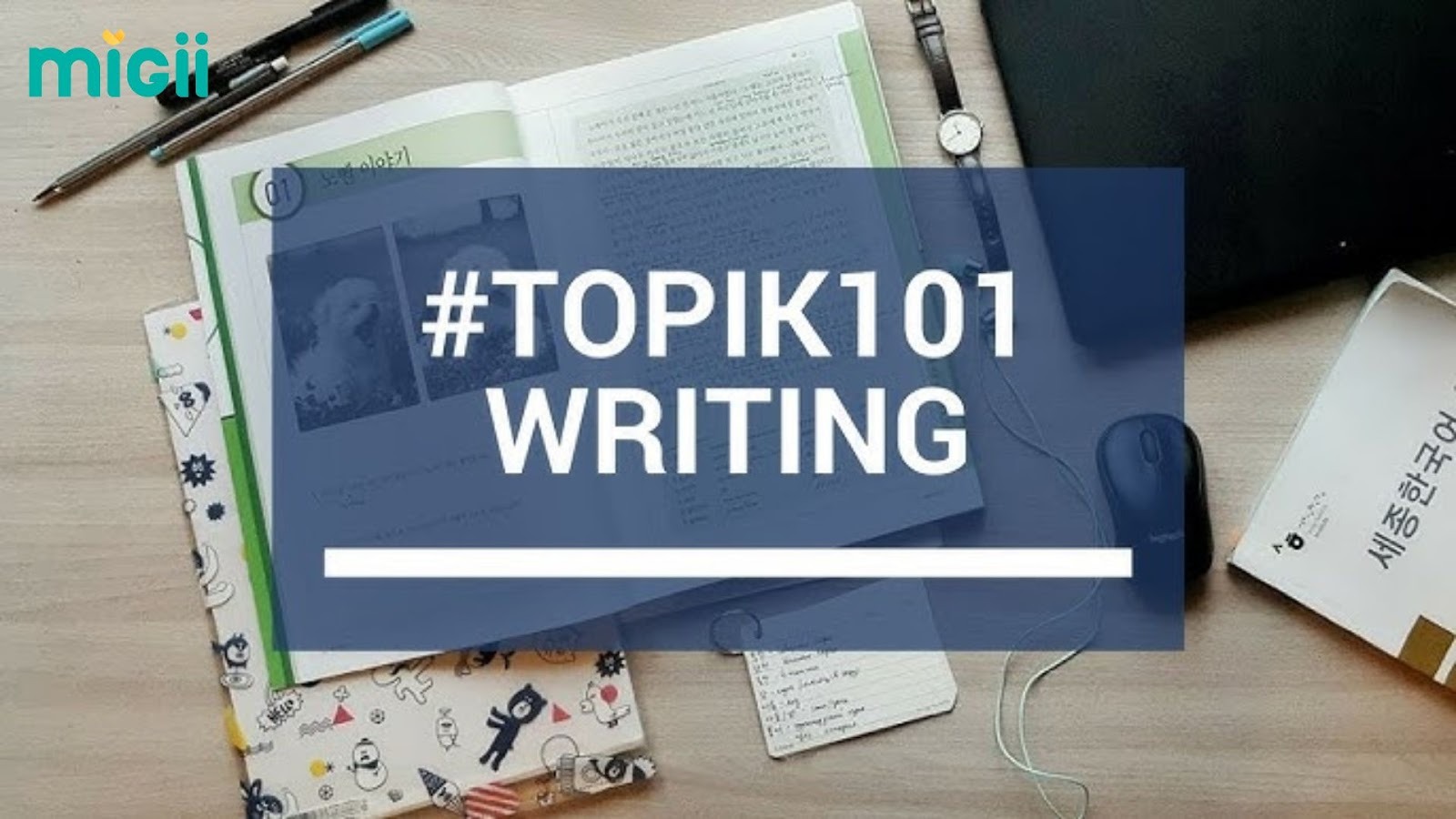
Classify vocabulary by topic
You can also create a mind map or personal vocabulary notebook divided by these themes. For example, in the “Economy” section, list words related to finance, trade, and business; in the “Society” section, include terms about population, welfare, and inequality. Visual organization makes it easier for your brain to connect related ideas.
This method not only improves your memory but also allows you to recall and use words more naturally in both writing and speaking tasks. Over time, your vocabulary network will expand, helping you express complex ideas fluently — a key skill for achieving TOPIK Level 6.
Learn Vocabulary Through Real Contexts
Another powerful way to build a strong vocabulary for TOPIK 6 is to learn words through real-life contexts. Instead of memorizing isolated terms, try reading Korean news articles from sources like Yonhap, Naver News, or The Korea Times. These provide authentic language examples similar to what appears in advanced TOPIK reading passages.
Whenever you encounter a new word, write down the full sentence where it appears. This helps you understand not only the meaning but also the tone, collocations, and grammatical patterns that come with it.
For example:
정부는 지속가능한 발전을 위해 새로운 정책을 발표했다.
(The government announced a new policy to promote sustainable development.)
By seeing how vocabulary works in real sentences, you’ll gain a deeper grasp of nuance and natural usage — essential for mastering TOPIK Level 6 reading and writing.
Use Flashcards & Vocabulary Apps
To memorize TOPIK 6 vocabulary effectively, try using flashcard and learning apps such as Quizlet, Anki, Migii TOPIK, or Memrise. These tools make learning more interactive and efficient, allowing you to review words anytime, anywhere.
Set the app to Spaced Repetition Mode (SRS) — a scientifically proven method that reminds you to review words right before you forget them. This not only strengthens long-term memory but also helps you recall vocabulary faster during the exam.

Use Flashcards & Vocabulary
By turning vocabulary study into short, consistent sessions with these apps, you’ll build a solid and lasting word base for TOPIK 6 success.
TOPIK 6 Vocabulary learning resources
To reach the highest level, choosing the right study materials is absolutely essential. The quality of your resources directly affects how efficiently you can expand your vocabulary and grasp complex Korean expressions. Here are some of the most trusted sources among TOPIK 6 candidates:
Intensive vocabulary learning books
TOPIK II Vocabulary in 50 Days is a specialized vocabulary book designed for learners preparing for the TOPIK II exam (intermediate to advanced level).
- 1,400 Essential Words: Focuses on frequently tested words in TOPIK II, organized by topics such as society, economy, education, science, and culture.
- 50 Daily Lessons: Structured for one lesson per day, making it easy to maintain a consistent study routine.
- Three-Step Learning Process: Each lesson follows “Prepare” (guess the meaning from context), “Learn” (understand the meaning and usage through examples), and “Test” (practice and review with short quizzes).
- Supplementary Resources: Includes audio recordings by native speakers and English translations to support effective learning.
- Exam-Oriented: Designed specifically to help learners succeed in TOPIK II, with vocabulary and exercises closely aligned with the actual exam content.
This book is an excellent resource for building advanced Korean vocabulary and confidently preparing for the TOPIK II exam.
Here are TOPIK II Vocabulary in 50 Days download links:
Website & Online Learning Application
In today’s digital age, you don’t have to rely solely on books — there are many excellent websites and learning apps that make preparing for TOPIK 6 Vocabulary more interactive, flexible, and effective. These platforms combine reading, listening, and speaking exercises to help learners naturally absorb advanced Korean words and expressions.
Migii TOPIK is one of the most trusted apps for TOPIK learners at all levels, especially those preparing for TOPIK II (Levels 4–6). The app is designed based on real exam structures and includes a large collection of vocabulary, grammar, and practice tests.
Main Features:
- Vocabulary by topic: Study words categorized by themes such as society, economy, culture, and technology.
- Spaced Repetition System (SRS): Automatically reviews difficult words at the right intervals to strengthen long-term memory.
- Practice tests: Take mock exams that simulate real TOPIK questions with instant scoring and explanations.
- Audio pronunciation: Every word comes with a native pronunciation to improve your listening and speaking skills.
- Personalized learning path: The app tracks your progress and adjusts lessons to your weak areas.
Combine Migii TOPIK for structured learning, Quizlet for review, and Korean news sites for real-world practice. This integrated approach ensures you not only memorize TOPIK 6 words but also use them fluently and confidently in both the exam and real communication.
Tips & Practical Test Preparation Experience
Achieving TOPIK Level 6 isn’t just about memorizing vocabulary — it’s about understanding how to use words appropriately in each section of the exam.
You need to know which expressions fit formal writing tasks, which vocabulary appears frequently in listening or reading passages, and how to naturally incorporate advanced words into your speaking and writing. The key lies in contextual understanding — mastering when, where, and how each word is used.
This deep comprehension is what truly distinguishes a TOPIK 6 learner from others: not only knowing what a word means, but also how it functions in authentic communication.
In the Reading section (읽기)
The Reading section of the TOPIK 6 exam often contains long passages with complex sentence structures and advanced vocabulary. To perform well, you need to go beyond basic comprehension and focus on how ideas are connected within each text.
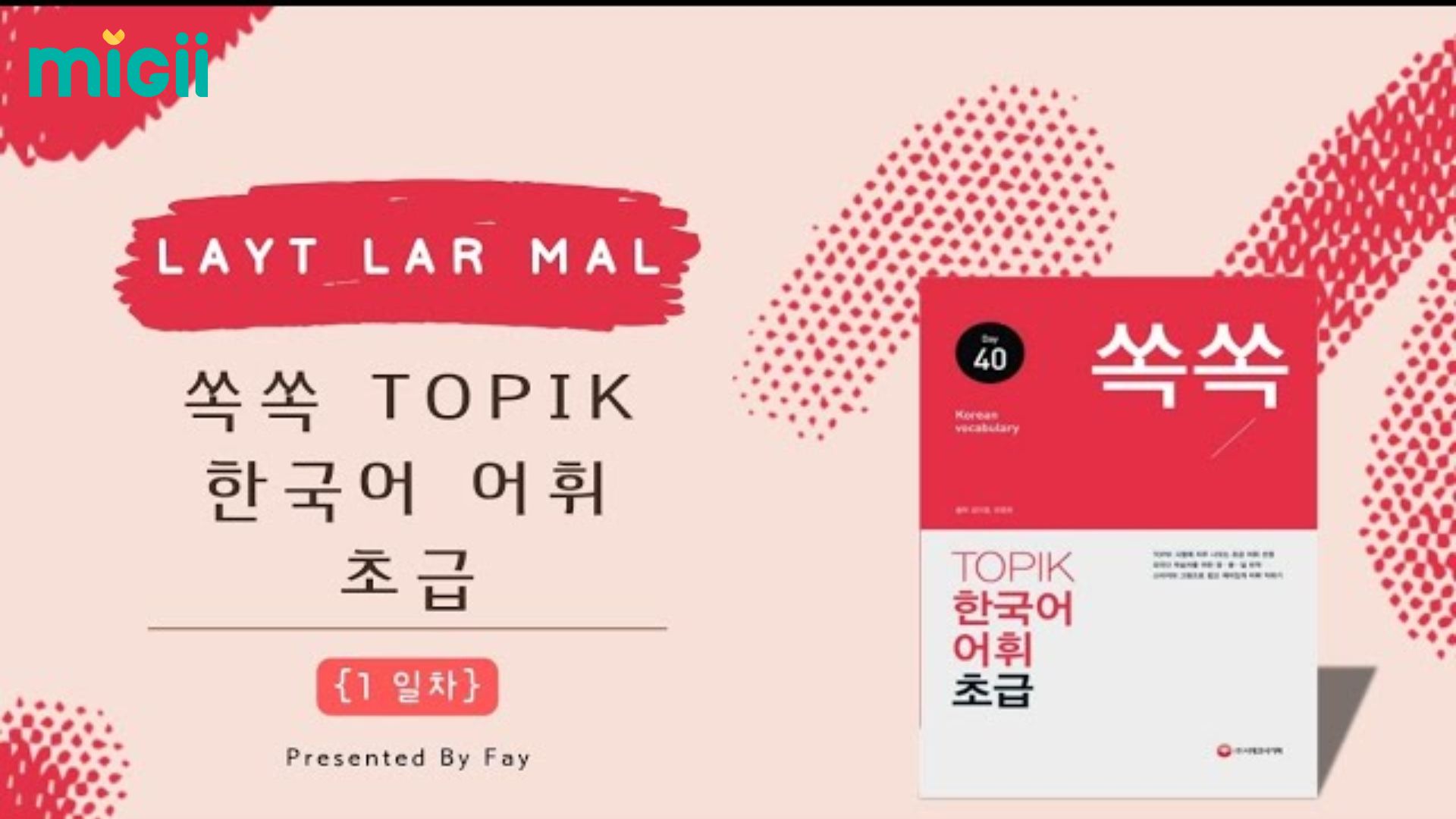
In the Reading section (읽기)
Pay special attention to conjunctions and transition words such as 그러나 (however), 따라서 (therefore), and 게다가 (in addition). These words signal contrasts, conclusions, and added information — understanding them helps you grasp the author’s logic and flow of argument quickly.
You should also make a note of argumentative and opinion markers that often appear in academic or analytical passages. Recognizing words and phrases that express cause, effect, agreement, or criticism will make it easier to identify the writer’s viewpoint and choose the correct answers in comprehension questions.
A strong vocabulary is essential to fully understand complex TOPIK 6 passages. By mastering advanced words and expressions, you can quickly recognize the nuance and meaning of sentences, making comprehension faster and more accurate. To support your preparation, you can use a structured vocabulary resource like TOPIK 6 Vocabulary List. This resource provides categorized lists, real-life examples, and exercises, helping you apply vocabulary directly to reading tasks and understand subtle contextual meanings.
Here are Topik 6 vocabulary download links:
In the Writing Section (쓰기)
In the Writing section, using Sino-Korean (Hanja-based) vocabulary can make your essay sound more formal and academic — a key factor for achieving a high score in TOPIK 6.
For example:
- 좋다 → 바람직하다 (desirable, appropriate)
- 생각하다 → 인식하다 (to perceive, to recognize)
- 문제 → 현상 / 사안 (phenomenon / issue)
These advanced word choices show your linguistic maturity and ability to use nuanced expressions like a native speaker.

In the Writing Section (쓰기)
To improve, practice writing 2–3 short paragraphs every day, focusing on naturally integrating advanced vocabulary. Over time, this habit will enhance both your writing fluency and lexical sophistication, helping you perform confidently in the TOPIK 6 writing tasks.
In the Listening section (듣기)
For the Listening section of TOPIK 6, regular exposure to authentic materials is crucial. Try listening to news reports, interviews, or talk shows — these sources use advanced and formal vocabulary that closely resembles what appears in TOPIK II exams.
While listening, note down fixed expressions and collocations such as 정책을 시행하다 (to implement a policy) or 문제를 해결하다 (to solve a problem). These phrases not only help you understand context more easily but can also be reused effectively in your writing and speaking sections.
Consistent listening practice will train your ear to recognize complex sentence structures, formal tone, and nuanced vocabulary — all of which are essential for mastering the TOPIK 6 Listening test.
Conclusion
Reaching TOPIK Level 6 is a long but completely achievable journey if you have a smart vocabulary learning strategy. The key is to study consistently rather than cram — learn a few words each day, review them regularly, and use them actively in reading and writing. Make sure each new word appears in at least three different contexts to fully understand its meaning and nuance. With tools like Migii TOPIK, you can plan, track, and review effectively through real exam-style practice, making your path to TOPIK 6 smoother and more confident.


